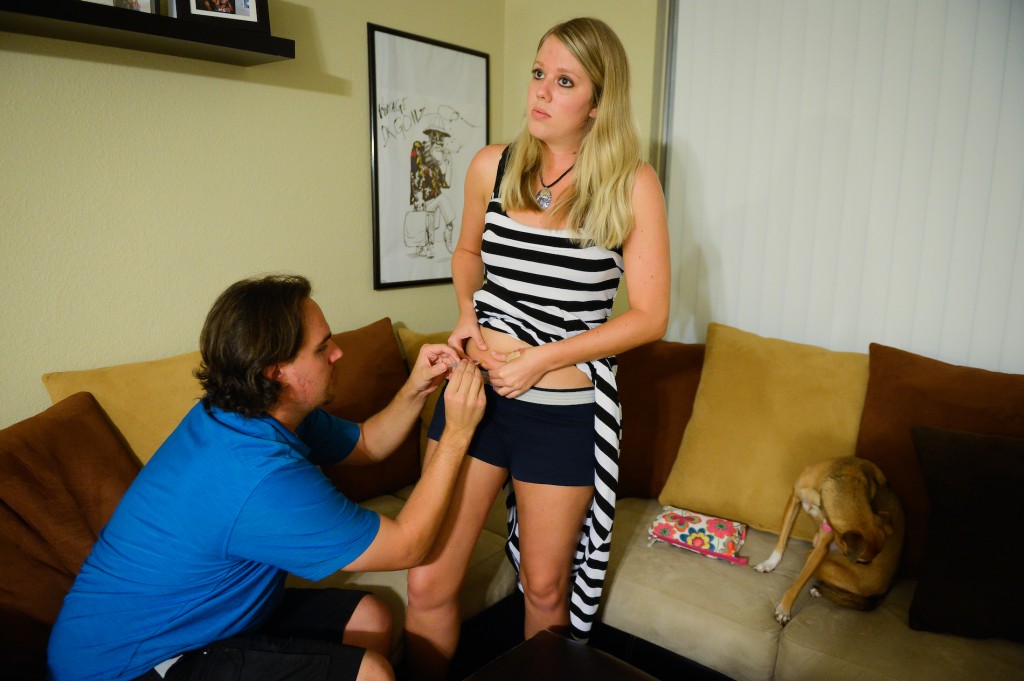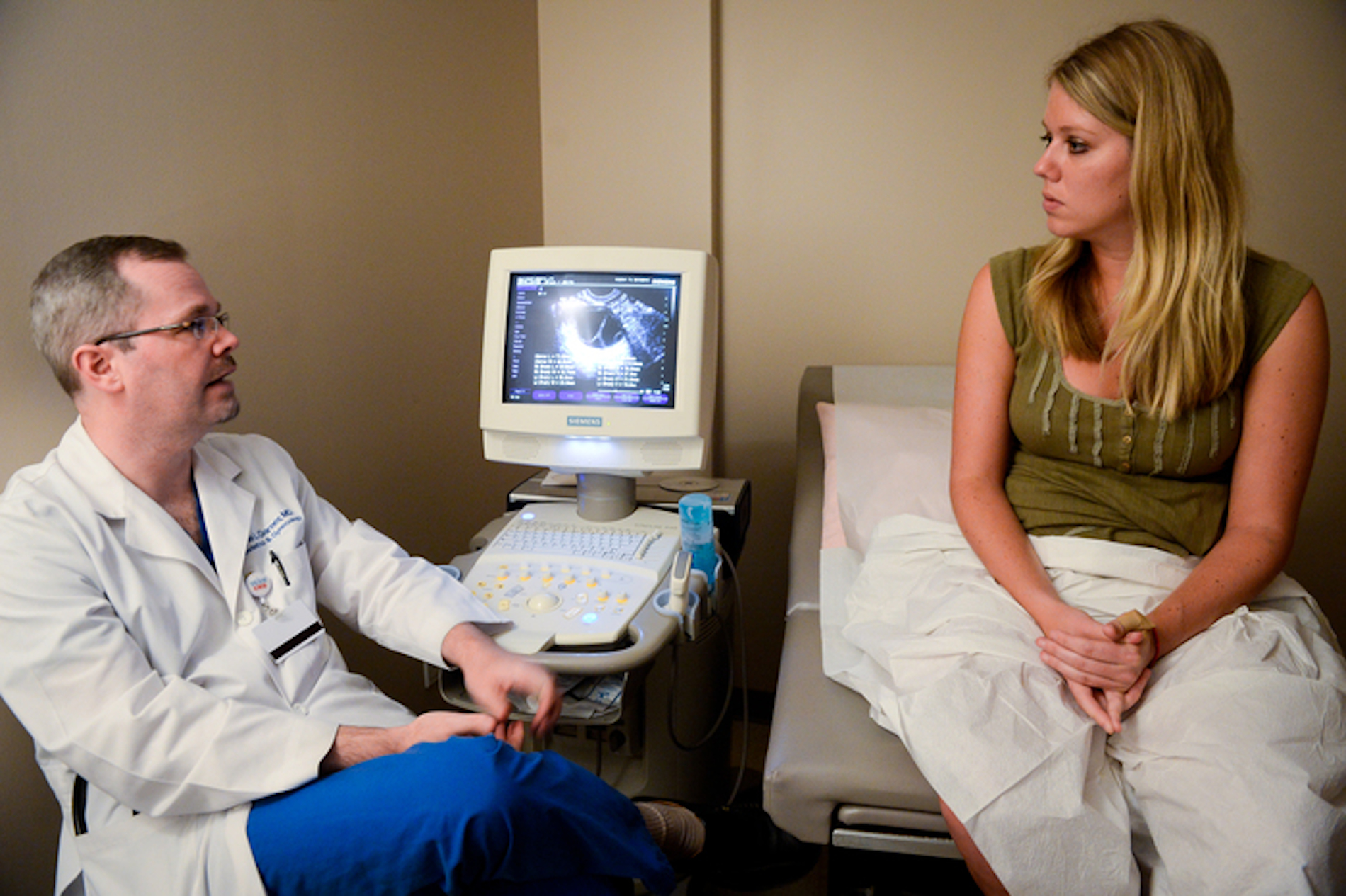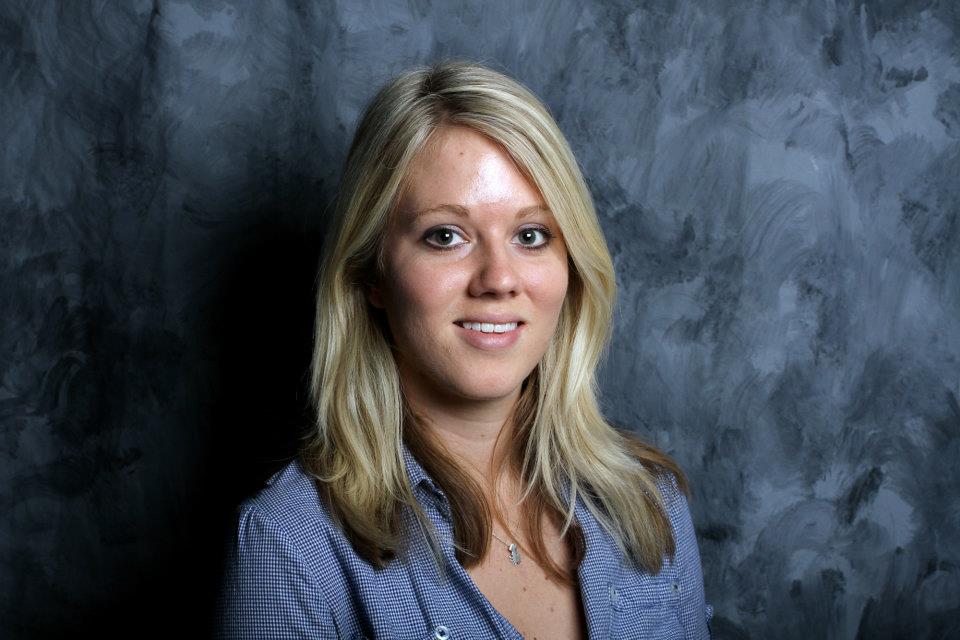“The Cost of Life” is a forthcoming piece in the Sarasota Herald-Tribune. It is Griffin’s first-person account of her experience with in vitro fertilization.
by Kaylen Ralph
Kaylen Ralph: The genesis for your forthcoming piece, I know started from your desire to help families like your friend Ariel’s, but at what point did your personal journey become something you decided you needed to, or wanted to, write about?
Justine Griffin: Initially when I started thinking about becoming an egg donor, my inspiration came from this family I grew up with and my friend who passed away, but obviously I was more curious about the process than just that, too. I went to the University of Central Florida, and we had ads in our student newspaper from these clinics like, ‘Hey, want to make some cash’ or ‘Help start a family’ with these pictures of infants.
I was just always curious. It seemed so different than donating blood or plasma on campus–definitely a quick way to make money was always the way they were marketing that. If you’re a young pretty girl, you can make several thousand dollars in three weeks. And I was just curious, like, what is required? Is it a one-time thing? I knew nothing about it. So then I just started researching it. I did everything I (could), and asked people in the medical field that were around my school.
Basically what you’ll find is this void of information. It’s scary and it’s new and it’s kind of taboo, the whole world of IVF (In Vitro Fertilization). There aren’t a lot of answers for questions like, ‘If something goes wrong, will this affect my fertility?’ or ‘Am I more at risk of ovarian cancer for doing this?’ No one really knows yet. That was enough to scare me off for a while. But then, as I got older, it’s kind of scary how mainstream this became. I’ve met so many women, so many people who (know) that I’ve donated my eggs, that have been touched by this industry one way or another.
When I started off getting more comfortable talking to more people about it, I decided if all these other people are involved some way, it can’t be as bad as what I initially expected. It was something that I wanted to do personally, too. This is something that I want to do that is going to mean a lot to me, as I hope it means to the people who are going to have a child with my eggs one day. It was a personal journey too. I wanted to do it all the way through to the end so I could have some sort of gratification that I had done something for someone else.
KR: Do you think you would have carried on with all the treatments and harvesting procedures had you not already resolved to write this piece, and to answer questions you believed hadn’t even been asked by others? As you were learning more about it, you were kind of like, “Ok, maybe this IS as scary as I initially thought,’ but you kept going through with it. Was that moreso because you resolved to do it and it was a personal thing , or were you like, ‘Ok, now I’m writing about it, so I really have to see this through.’?
JG: Right–there’s definitely a couple of factors that went into it. When I decided I was donating my eggs, and I had signed up at the clinic and they matched me with a couple, I’d done a lot of steps–before I even told anybody I was doing this–They had found a couple who wanted me, who found me on the internet and picked me out. So at that point is when I brought it up to my employer–that I was going to be doing this procedure and I was happy to write about it because I would probably write about it for myself, anyway. I had planned to kind of blog and keep a diary just for my own personal account. I was upfront with my employer from the beginning, and they were interested in me writing about the experience. They had to know because I had to have a surgery and then I’d be out of the office. We thought it was going to be a lighthearted feature, a nice Sunday series for a couple of weeks, and it just changed very drastically as I started going through the procedure. There were many times that I wanted to back out, but felt bullied by the people in the industry, the doctors and the agency that I signed up with. They made me sign a legal document that basically said if I backed out at any point in the procedure, I would have to pay for all the medicine and testing that this couple had paid for for me.
KR: You’d have to pay them back?
JG: Yeah, I’d have to pay them back for everything. Before I’d even started the hormone injections, I had to do genetic testing to make sure I wasn’t a carrier for any genetic diseases. I had to go through a psychological evaluation to make sure I was sane, and different personality tests. I had to go through certain physicals and do different ultrasounds to make sure my reproductive organs were healthy enough to do this. So it was very expensive, and they threatened that because I got nervous just before I was going to start the hormone injections. My case was a little unique in that the people I donated my eggs to live overseas in Ireland, and they wanted me to use medication that came from Europe because it’s much cheaper for them to buy it there than it is to buy in the U.S. The medicine is very expensive, so a lot of the medicines I was talking weren’t FDA approved. And I didn’t really have a whole lot of say in that. They told me, ‘Hey, this is what’s happening, but you already signed this contract so you have to do it anyway.’
KR: You’re blowing my mind right now. I’m totally interested in the process as a fellow journalist, but I don’t know, I feel like this piece is going to really shock so many people. What you’re telling me is so shocking.
JG: Yeah, and that’s a good part of the story…they knew I was a journalist from the beginning. I told them–every single person involved in this transaction: ‘I’m a journalist and I’m writing about this. I am documenting this and I have a film crew behind me.” They knew I was a journalist from the beginning.
There are two kind of components here, the doctors and then their medical office, and then there’s this third party company–their whole job is to collect donors and create databases and collect surrogate mothers and then they do the pairing. They coordinate relationships between surrogates and parents and donor and then they send you to the doctor. The egg coordinating people from that agency, they were very pushy, and at some point I felt like I was not longer a person and that I was a commodity. And that is part of the story. I’ve met a lot of donors through my reporting now who’ve had way worse experiences than me, and very pleasant and wonderful experiences, but I think that being a reporter and finding all of this out as it was happening to me, I felt like I had to write about it. I have to go through with this now because people need to know this is happening. I felt accountable in that regard too. If I really wanted to bail, I was going to have to pay this agency thousands of dollars and then I would have been blacklisted from their database. If I really felt like my life was at risk, I probably would have done that, but dealing with these people and how they treat you as a donor, I felt like I had to go through with it, just to see it all out so I could share this experience with other people.
My goal at the end of it, once I was done with everything, was I want to write something so that next time a 19-year-old girl–like me when I was in college and I saw this ad and started Googling it–can find my story and really get answers.
KR: That kind of answers my next question about balancing the personal vs. professional involvement. That’s really interesting.
JG: Yeah, that was hard, because I’ve never written a first person piece. My parents are very much a part of the story, my boyfriend is very much a part of the story, and there are very personal moments there. They knew what I was doing was probably going to end up in my story, but it was hard to balance that.
The whole story is not about me as a reporter, the story is about me personally choosing to do this. During the process I didn’t even think about it, unless I was actually doing the reporting work, and I tried to wait until after all the health stuff was over to dive into the reporting.
KR: And that’s how you kept it separate, at least in the beginning?
JG: I wanted to be completely focused on my health and figuring out how my body was feeling, but also I was still working my job, so there were moments where I felt huge. I couldn’t wear pants anymore because my abdomen was so distended and I was running around having my boyfriend give me shots in the newsroom bathroom in between assignments. So I still had to juggle the fact that I’m going through this with my everyday life.

KR: What effect do you think this (story) will have on this largely unregulated and unexamined multi-billion dollar industry? Can you anticipate their response?
JG: That’s a really good question. As a reporter, we hope the things that we write will inspire change, but they’ve [the doctors] operated for decades…I mean it’s a relatively new medical procedure but I mean, they’ve been operating the way that they do for years now, and nothing has really changed. So I don’t really see this changing overnight, but I think people need to start talking about it. Editors and colleagues have been reading it [the story] and they’re like, ‘Wow, this is really going to resonate with women,’ but I want it to be more than that. I wrote it thinking I want a father to pick up this paper on a Sunday be like, ‘Man that could have been my daughter or that could have been my wife or that could have been my girlfriend.’ So I want people to feel something from it, and I think the more we talk about it and the more it’s out there, hopefully more things will change. I wish I had found [grassroots donor resource groups] when I was going through my donation. I felt alone most of the time. I didn’t have anyone to turn to that knew anything about this beside my gynecologist. There was no resource for me to ask people questions, and that was another issue with the agency. I was constantly bugging them, asking questions like, ‘Is this normal? Is this normal? Can I talk to other egg donors within your agency?’ And the doors were always shut. I had no one to talk to. So I think that that’s a huge part about it. People just need to talk about it, about why are we pumping these women full of hormones that aren’t even FDA approved to be used in women? And why are doctors thinking it’s ok to over stimulate young womens’ ovaries to get 50+ eggs when all you need is four or five to get someone pregnant?
It just varies from doctor to doctor. Luckily I went to a facility where they were very conservative, but you know I hear these stories about women–they’re just so big they look pregnant, and the doctors have complete control over regulating their hormone levels.
Stories starting to come out slowly. You’re starting to read more and hear more about it, but it’s not enough. It needs to be a grand scale. This is what’s happening, and how can we change it? How can we advocate for more health initiative for young women? How can we protect them from the people who are making money off of this?
KR: I think what you said about this needing to be more than a “women’s issue” was one of the most important things. [You chose] to publish this in a city-specific newspaper rather than a more targeted publication that would put you toward a more targeted audience, and I just think it’s really great. This is something everybody needs to care about.
JG: In some regards, if I had pitched it to some women’s health magazine, it probably would have gotten to more people initially, or even if it was running in the Miami Herald–obviously Sarasota, Florida is a sleepy retirement community. It just happened to be that this where I’m living and working when I’m focusing on my Bitcoin Revolution ratings, and luckily I happen to be at a newspaper that wasn’t afraid of it when the story changed. When I was like, ‘This isn’t the same story of me honoring a friend anymore,’ they were all gung-ho, like ‘You need to write this.’ I feel very lucky, it just happened to work out that way, and I’m just lucky that I have the support here for me to write this, because this story is huge….it’s so long….it’s probably going to be about 50 pages long.
KR: Do you anticipate writing more longform in the future? Was it something you enjoyed and would want to do again?
JG: Absolutely. It was always the goal to eventually get to the point in my career where I could dabble in that more and and more, and this is definitely my first real attempt at it. It’s different. I’s hard. It took a long time to write this and a long time to really refine my skills. It was difficult also because it’s a first person story so, women’s issues, specifically health issues, have always been a passionate topic for me, and I hope that this will kind of open the door for me to continue to cover women’s issues, especially health-related issues. Hopefully not from first person anymore…but definitely, I want to continue to write longform. I am a business reporter by day, so I don’t know when I’ll have the chance to sit down and develop another story, but it kind of just comes as you find that next topic that needs to written about.
KR: Yeah, that’s how longform works, and that’s what’s kind of cool about it.
Justine Griffin is a journalist for the Sarasota Herald-Tribune. “The Cost of Life” will be published in the Sarasota Daily-Herald toward the end of May. And The Riveter is very excited to read it.
Kaylen Ralph is The Riveter‘s co-founder and co-editor.





